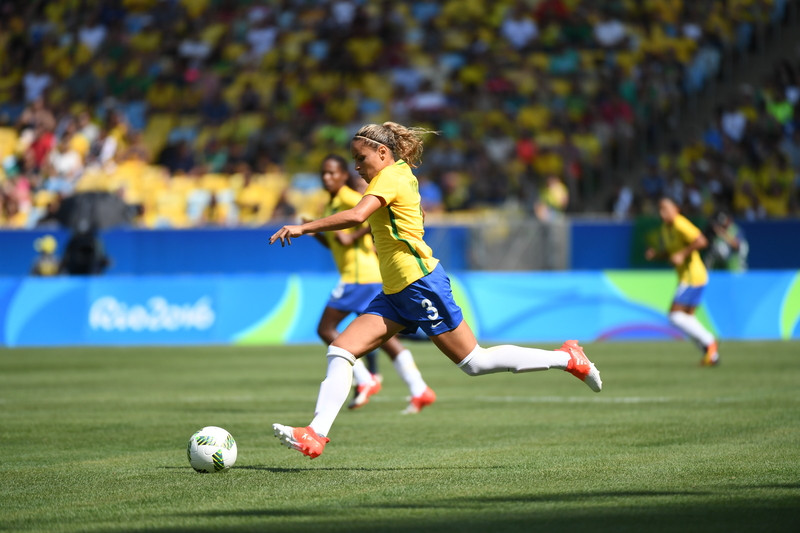Soccer, Summer Olympics
Welcome and thanks for visiting...

Soccer in the Summer Olympics

Soccer, known as football in most parts of the world, takes center stage as a captivating sport in the Summer Olympics. Its rich history, evolving rules, competition formats, and rigorous qualification processes for both men's and women's categories add unparalleled excitement to the global sporting event.
Olympic History of Soccer
Soccer's tryst with the Olympics dates back to the 1900 Paris Games, where men’s soccer made its inaugural appearance, followed by women’s soccer in 1996. Since then, it has become an integral part of the Summer Olympics. The next Summer Olympics in 2024 will also be in Paris.
Initially, the tournament was contested by amateur players, but over the years, it has evolved to include professional athletes. FIFA realized that given the Olympics did not represent the true strength of the international game by only allowing amateurs to participate.
Throughout its history, various nations have left an indelible mark on the Olympic soccer landscape. Legendary players such as Lionel Messi (Argentina), Marta (Brazil), and Mia Hamm (USA) have showcased their skills on this prestigious platform, contributing to the sport's legacy within the Olympic movement.
Important Rules in Olympic Soccer
The rules governing Olympic soccer mirror those established by FIFA, the sport's global governing body, and the Olympics.
Matches consist of two 45-minute halves, totaling 90 minutes of play, with extra time and penalty shootouts to determine the winner if a match ends in a tie during knockout stages. Teams field 11 players each, including a goalkeeper, adhering to standard FIFA regulations.
Referees enforce strict guidelines on fouls, offside, and player conduct to ensure fair play. Yellow and red cards are used to caution or expel players for rule infractions, maintaining the game's integrity throughout the tournament.
Competition Formats in Olympic Soccer
The Olympic soccer tournament format typically comprises group stages followed by knockout rounds leading to the medal matches. As of 2021, the men’s and women’s soccer tournaments started with a different number of participating teams: 16 teams for men and 12 for women. These teams are divided into groups from which top contenders advance to the knockout phase. The gold, silver, and bronze medals are fiercely contested in exhilarating matches that captivate audiences worldwide.
Qualification for Olympic Soccer
Qualification for Olympic soccer involves diverse pathways for men's and women's teams. For men's soccer, teams qualify through regional tournaments, such as the UEFA European Under-21 Championship and the CONCACAF Men's Olympic Qualifying Championship. The host nation automatically earns a spot, and the remaining slots are allocated based on performance and qualification criteria.
Similarly, women's teams vie for Olympic berths through regional championships, such as the UEFA Women's Under-19 Championship and the CONCACAF Women's Olympic Qualifying Championship. The host nation secures a spot, and additional teams qualify based on regional competitions and rankings.

Contrasts in Men's and Women's Olympic Soccer
The disparities between men's and women's Olympic soccer competitions lie not in the rules or format but in the diverse landscapes of their respective tournaments. While both emphasize skill, teamwork, and sportsmanship, the paths to qualification and the competitive environments differ due to regional nuances and the development of the sport in various regions.
In recent years, the women's game has seen remarkable growth and parity, attracting larger audiences and showcasing exceptional talent on par with the men's competition.
Olympics Cornerstone
Soccer's prominence in the Summer Olympics resonates with fans worldwide, showcasing the sport's universal appeal and its ability to unite nations on a global platform. As the tournament evolves with each edition, the passion, skill, and sheer exhilaration of Olympic soccer continue to inspire generations of athletes and fans alike, solidifying its place as a cornerstone of the Olympic Games.







